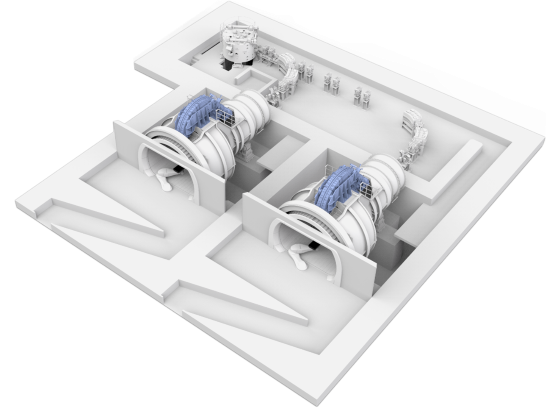SHI receives first order for next-generation proton therapy system from Taichung Veterans General Hospital
December 01, 2022
Sumitomo Heavy Industries, Ltd. (head office: Shinagawa City, Tokyo; President and CEO: Shinji Shimomura; hereinafter "SHI") has received an order from Taichung Veterans General Hospital (Taiwan) for a next-generation proton therapy system (*). The next-generation system will be installed at a new proton therapy center to be established in Taichung City, Taiwan, and proton therapy is scheduled to begin in 2026. This is the first order for SHI's next-generation system.
With the aim of realizing societies where people can live long and healthy, SHI will continue to contribute to cancer treatment in the East Asian region, including Taiwan.

[Taichung Veterans General Hospital]
Taichung Veterans General Hospital is a national hospital located in central Taiwan and provides safe and high-quality medical services with new medical technologies and outstanding talents. Taichung Veterans General Hospital plans to conduct research on new treatment technologies, such as FLASH, in collaboration with SHI.
[Next-generation proton therapy system]
The next-generation proton therapy system to be introduced is a multi-room type and will accommodate two treatment rooms equipped with rotating gantries and one room for future expansion. The compact system layout reduces the building volume by approximately 30%, and a large-field cone-beam CT mounted on a 360-degree rotating gantry provides simple and highly accurate patient positioning. The system will also enable short-time irradiation to treat moving organs such as lungs and livers with high precision. The system is equipped with a superconducting cyclotron, which has the world's most powerful output for proton therapy.
[Proton therapy]
Proton therapy is a type of radiation therapy for cancer in which protons, also called hydrogen ions, are accelerated and irradiated to tumors to destroy tumor cells. Damage to normal tissues around the tumor is reduced, resulting in fewer side effects and making it easier for patients to maintain their social life.
(*) The next-generation proton therapy system is an unapproved medical device.
